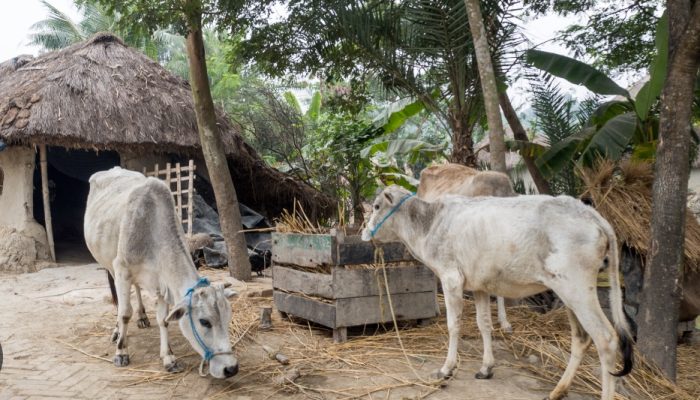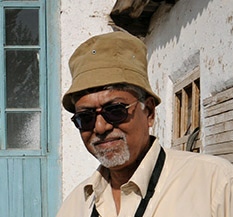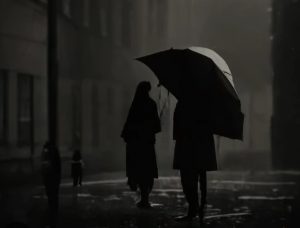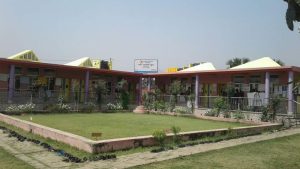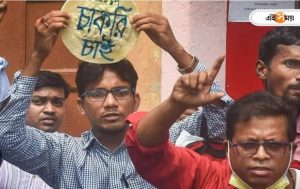A Non-sense Novelette
Chapter 14
Epilogue
Years later, when my boss, the Deputy Director in the Animal Resource department, pronounced his intention of bundling me, a lower division clerk, on an official tour in West Medinipur, I thought of paying a visit to Nischindipur and spend a couple of days with Chandu if conditions were not too unfavourable. My boss had enormous faith in my veterinary abilities. I had once cured his male terrier’s prolonged state of melancholy and depression, after a couple of veterinary surgeons had failed, by the simple remedy of barring permanently a large window which gave an uninterrupted view of a stray bitch.
I was at college with Chandu, pursuing the same unachievable B.Com. degree and, both being equally chicken hearted, clung to each other to avoid the onslaught of our robust mates. Then we drifted, I to my clerical apprenticeship and Chandu to his poetical one, but we kept in sporadic touch.
As per schedule, I was roaming the dusty lanes of Nischindipur in high spirits on a wintry evening in search of Chandu and was getting increasingly frustrated as the passers-by directed me repeatedly to the wrong person. How many Chandu did this small village tolerate? Finally, however, the wrong one accosted me, “Are you looking for me?”
Close scrutiny revealed the person to be Chandu all right—his proportions including his face had doubled breadth wise. There were three chins now, where there had been none.
After he had peered closely at me for what seemed to be hours, he strangled me joyfully with a hearty laugh, repeated the scrutiny and remarked, “you looked more like a monkey now, a shriveled ageing monkey.” I ignored this irritating analogy, fully aware that Chandu was ignorant of the toils of a lower division clerk in the veterinary department.
In the next few days I followed him closely to see how he was moving on in life. Chandu, it appeared, had nothing much to do and was very busy, mostly frequenting between two houses in adjacent villages, the ancestral and the in-law’s, often forgetting for what errand he had turned out for and ended by having two lunches, two dinners and so on. His father had become trade partners with his milk rival after his matrimonial alliance with Nanibala and the two seniors, now bosom friends, managed the business well without Chandu’s interference.
The accounts, initially handed over to Chandu with his glorious history of prolonged B.Com. attempts, were ingloriously snatched away by Nani when audit revealed that the accounts ledger was adorned with what appeared to be poetic scribblings. The ledger was unceremoniously cremated. Alas, some valuable Bengali poems were lost.
I accompanied Chandu on his to and fro errands and various courses of meals and in between had plenty of leisure time to muse on this and that.
“Do you write anything nowadays?” I asked.
“Shh!” Chandu looked around furtively at dark corners, “There will be all hell breaking loose if Nani hears of our talk.” I was not unduly worried as I knew that Nanibala was in the other house. “Shh—,” he repeated, “there are spies around.”
Then convinced that there were no lurking Mataharis, he sighed and asked in a tentative voice, “I am happy, ain’t I?” He seemed to be a trifle unsure.
“Of course you are,” I retorted violently thinking of my own life, “Such a wholesome life with hardly any worry in the world, with Nanibala and such healthy boisterous twins—.”
“Brats!” Suddenly Chandu erupted, “sons of devils. They do not give me a little piece of the mind. Do you know the other day I was sitting here musing and chewing a cud or two trying to revitalize my gastronomic juices, when one of them shouted, ‘Mother, come here, father in a trance again—will switch over to Srirup.”
“There will always be minor irritants, Chandu,” I sympathized, “but overall I think you are doing fine.”
My scheduled leave for two days was stretched to a week with Chandu and his extended family refusing to part with me and I was already showing signs of a paunch and padded cheeks.
I had never before suspected milk to be able to produce so many offspring—legitimate or otherwise—and going by so many names like, Rabri, Payesh, Dai, Ghol, Sharvaja, Dud bhat and the legendary Rasgolla, a rock hard sugary marble size ball, an effective missile against unsuspecting birds and a choking device for unsuspecting humans.
I had to leave, however, as my stomach was protesting quite audibly to my immense embarrassment; it had never encountered such milk orgies.
The End

